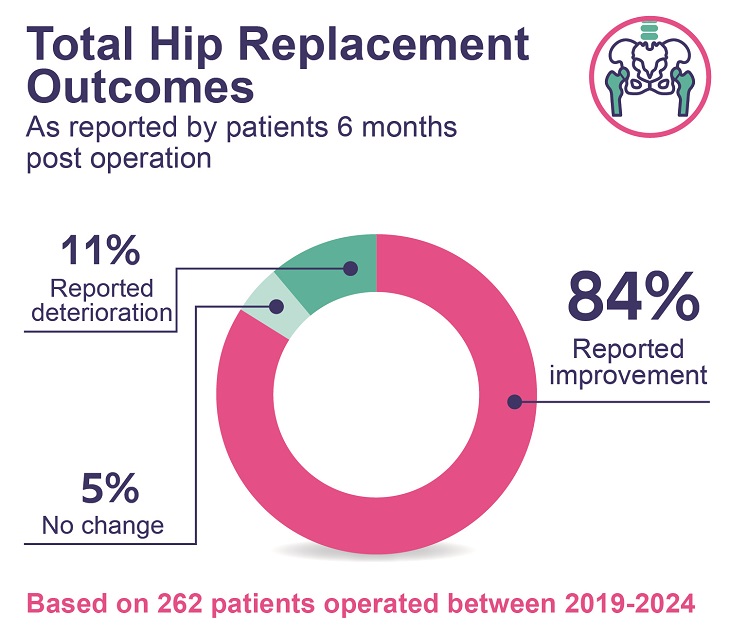hip replacement Outcomes, PROM's
Over the past generation, joint replacement surgeries have become increasingly common, with more than 6,000 procedures being performed annually in Israel. Hip replacement surgery is recommended for patients experiencing pain, significant restrictions in movement, and decline in daily functioning and quality of life resulting from wear and tear in the cartilage of the hip joint. This intervention is considered after conservative treatments, such as painkillers, anti-inflammatory drugs, and physiotherapy, no longer provide relief.
Over time, wear and tear in the joint can deteriorate leading to a distortion in its structure that increasingly limits movement, resulting in limping, difficulty walking, standing, sitting down, and rising from a chair). This can lead to severe and chronic pain. The goal of surgery is to stop the pain and improve flexibility, mobility, and quality of life.
As part of the project, we gathered data from more than 300 patients who underwent elective knee replacement surgery at Sheba. The participants were asked to fill out a questionnaire (HOOS-PS) that assessed their level of functioning prior to the surgery, as well as at three months, six months, and one year post-surgery.
The outcomes were derived from data collected between 2015 and 2023. Looking at the graph, we observe that among patients who described their health condition as moderate to severe before surgery, 85% reported clinical improvement after about six months, 9% reported a decline in their baseline condition, and 6% noticed no change in their condition









